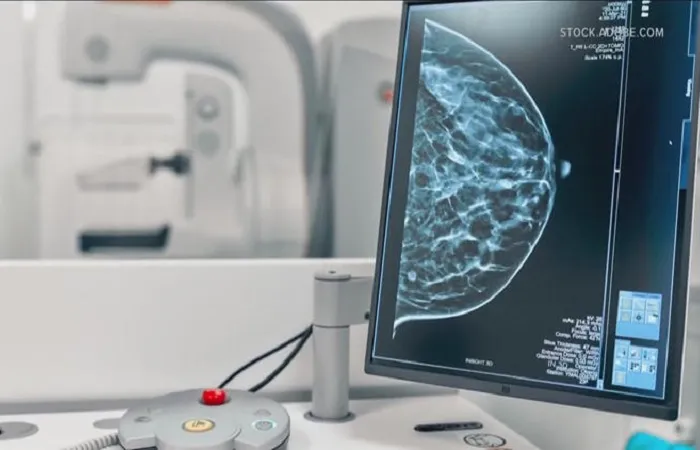A new clinical trial is underway in Buffalo, New York, exploring the potential of minimally invasive surgery as a treatment for breast cancer. The trial focuses on a novel laser technique called radioablation, which aims to treat cancerous tumors by using heat to “burn” them away, eliminating the need for traditional surgical intervention.
Dr. Stuti Tambar, a Breast Surgical Oncologist at Kaleida Health, is leading the national trial. This innovative approach, already accepted in Europe, is being tested in the U.S. for the first time to determine its effectiveness in curing breast cancer without requiring invasive surgery.
How Radioablation Works
Radioablation uses laser technology to target and destroy breast cancer tumors. The procedure is done in Dr. Tambar’s office under local anesthesia, meaning that patients are awake and alert during the treatment. The procedure is surprisingly quick—taking only about 15 minutes. The laser heats up and burns the tumor, potentially eliminating the need for traditional surgical removal of the tumor.
“The tumor is burned away in theory, and the patient no longer requires surgery,” Dr. Tambar explains.
Eligibility Criteria: Non-Invasive Breast Cancer and Small Tumors
Currently, the trial is available to women diagnosed with non-invasive breast cancer and small tumors. These types of cancers, while potentially serious, are more easily treatable with less invasive methods. Non-invasive breast cancer, also known as in situ cancer, does not spread beyond the milk ducts or lobules, making it an ideal candidate for this procedure.
Revolutionary Potential: A Game-Changer for Many Women
Dr. Tambar is optimistic about the transformative potential of this technique. She describes it as “revolutionary” for the future of breast cancer treatment. She emphasizes that the current standard treatment for breast cancer typically involves surgery, but many women are unable to undergo surgery due to factors such as age, other medical conditions, or personal circumstances.
“For so many women who cannot have surgery, whether due to their age or other health issues, they are often left with palliative care and medications, essentially living with cancer without curative options,” Dr. Tambar explains. With radioablation, these women could potentially have a non-surgical treatment option that offers a way to eliminate the tumor and avoid invasive surgery.
Looking Ahead: Changing the Treatment Landscape
If the clinical trial proves successful, radioablation could be a game-changer in how breast cancer is treated, providing less invasive alternatives to traditional surgery. The clinical trial is expected to have far-reaching implications for the future of breast cancer care, especially for patients who face significant risks or complications with traditional surgery.
The Future of Minimally Invasive Treatment for Cancer
While radioablation is still in the trial phase, its use in Europe and its innovative approach in the U.S. could lead to new standards of care for breast cancer patients, particularly those who are at higher risk for surgery complications or are unable to undergo traditional treatments.
In conclusion, this minimally invasive procedure has the potential to offer a safer, quicker, and more accessible treatment for breast cancer, revolutionizing how we approach cancer care and bringing hope to those who may have otherwise been left without options.
Related topics:
- Eldoret Visser Beats Breast Cancer Thanks To South Africa’s Kindness
- New Breast Cancer Treatment Slows Progression, Extends Survival
- Clairity Breast FDA Approved


